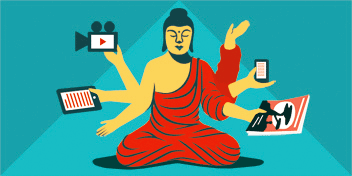The opinion expressed by Harris in the video is his truth. Some share it, some don't. I am familiar with the view-set and do not share it. The good news is that there is room for everything. There is no need for a zero-sum attitude.
Gassho
Daizan
Gassho
Daizan



 ). One is to refer to the "historical" person who was a psychologist/philosopher some 2500 years ago who understood much about the human condition and Suffering (Dukkha) and the various other principles mentioned able. One is as "Big Buddha", which stands for that which is the Flowing Empty-Wholeness of All Reality (i.e., the Big Enchilada), although all labels are ultimately inappropriate and it is just a name for an impossible to name. And then there is "Buddha", this archetype model of a fully enlightened being who may exist mostly as an aspiration in our hearts more than as a "real" being, a way of living free of all greed anger and ignorance which we all are targeting to become somewhere down the road (and even now can manifest when we manifest such qualities in our life).
). One is to refer to the "historical" person who was a psychologist/philosopher some 2500 years ago who understood much about the human condition and Suffering (Dukkha) and the various other principles mentioned able. One is as "Big Buddha", which stands for that which is the Flowing Empty-Wholeness of All Reality (i.e., the Big Enchilada), although all labels are ultimately inappropriate and it is just a name for an impossible to name. And then there is "Buddha", this archetype model of a fully enlightened being who may exist mostly as an aspiration in our hearts more than as a "real" being, a way of living free of all greed anger and ignorance which we all are targeting to become somewhere down the road (and even now can manifest when we manifest such qualities in our life). 



Comment